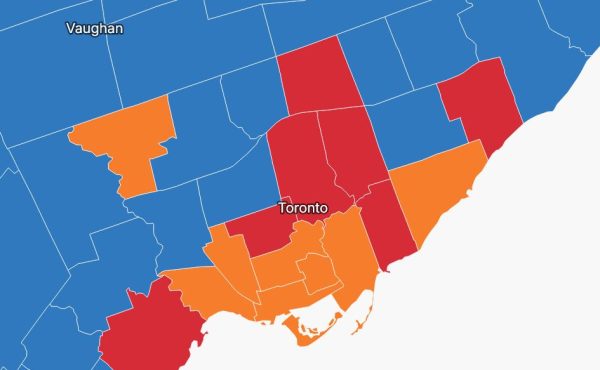

The three members of council’s compliance audit committee will convene Friday morning to consider item EA2.2, a.k.a. Ted Ho’s application to review Mayor Rob Ford’s election finances.
The request stems from my April 6 Globe and Mail story, which raised questions about the Ford campaign’s decision to use substantial cash advances from the family holding company that owns Deco Labels and Tags. Mr. Ho’s query is whether these advances conform to the Municipal Elections Act (which states that “all contributions of money are deposited into campaign accounts”), as well as City of Toronto by-law 1177-2009 [PDF], which bans corporate and union donations to municipal election campaigns.
The latter rule, enacted during David Miller’s term, was meant to improve local democracy by preventing organizations with lots of cash and an interest in the outcome from using their wherewithal to buy influence with elected officials.
But Section 69 of the Municipal Elections Act also states that it is the “duty” of the candidate to ensure that contributions of goods and services are “valued,” which is to say that these donations are accounted for as part of the campaign’s revenues. Less clear is whether this part of the Act is overridden by the City’s blanket ban on corporate contributions.
My sources tell me that by this week, another group of residents will have filed more detailed compliance audit request, also aimed at the mayor’s campaign.
I can’t, of course, pre-judge this inquiry, and I am not an auditor, much less a campaign finance expert. But let’s hope the compliance audit committee will look beyond those cash advances and examine other aspects of the financial relationship between the Ford campaign and Deco. Here are five other questions worth asking:
1. The campaign purchased an estimated $150,000 in materials from Deco. Given that there was a non-arm’s length relationship between the candidate and the company, what method did the campaign/Ford family use to set those price levels to ensure they weren’t providing an inappropriate discount (i.e., an indirect corporate contribution)?
2. The filings include several time sheets prepared by Deco employees, as well a $12,000 reimbursement to the company’s CFO Stephen Chan. Did these employees and executives forego their usual salaries or hourly wages for the duration, and how did Deco record those deductions on its books?
3. The filings include an invoice from a law firm indicating that the campaign had sought legal advice relating to unspecified “problems” with the Municipal Elections Act. How long was the campaign aware of these concerns?
4. The campaign rented office space in a building owned by Deco Labels, at a rate of $1,000 per month. How did Deco establish that price, and is there any evidence to indicate that campaign officials attempted to determine whether this particular short-term lease represented the going market rate?
5. The campaign’s financial statements indicate that there were outstanding debts as of Dec. 31 exceeding $700,000. What proportion of those payables involved previous purchases of materials from Deco, and is there an estimate on the value of the interest owed to Deco on any outstanding payments or advances from the family holding company?




2 comments
I wonder what what fruits such efforts would have given us if applied to investigating the David Miller – Tom Heintzman relationship?
Unfortunately I do not have much confidence that the judicial machinery will ask such hard questions. Like our media it seems, few are asking the fundamental questions on process, save ‘analysis’ from a few journalists. Thank you Mr Lorinc.